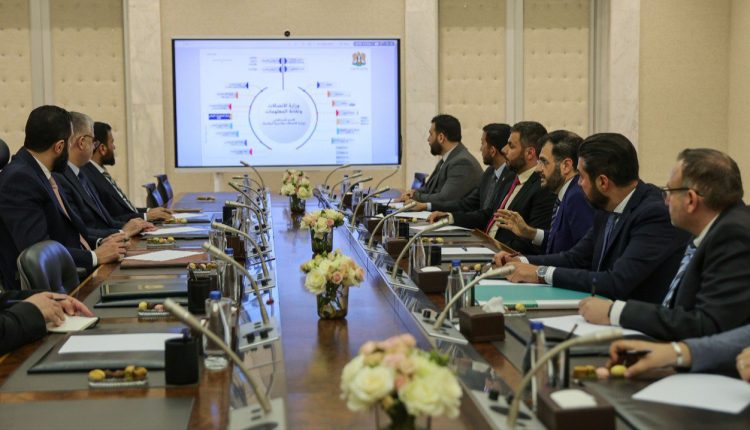Syria Partners with U.S. Tech Firm to Upgrade Internet Infrastructure
By Kardo Roj
DAMASCUS, Syria (North Press) –
The Syrian Ministry of Communications announced on Saturday the launch of a new project in cooperation with a U.S.-based technology company to upgrade the country’s aging undersea internet cable, a move that could significantly improve connectivity in the coming months.
The initiative, titled “Ugarit 2,” is being developed in partnership with Unify, an American telecommunications infrastructure firm, and aims to double Syria’s internet bandwidth within two months, according to Minister of Communications Abdel Salam Haykal.
The project marks a rare instance of technical collaboration between a Syrian governmental body and a U.S. company, despite the complex diplomatic climate surrounding the country’s transitional government.
In a post on the social media platform X (formerly Twitter), Haykal emphasized the significance of modernizing Syria’s internet infrastructure, noting that the undersea cable currently in use has been operational for over 30 years.
“This is a critical upgrade,” Haykal stated. “With Unify’s support, we are replacing outdated equipment in the existing system to improve connectivity across the country.” He noted that the immediate phase focuses on enhancing current capabilities, while a second phase will include laying a new 250-kilometer undersea cable between Bentaskeinos, Greece, and the port city of Tartus.
The development comes at a time when digital access and information flow are vital for both civilian communication and institutional operations, especially in a country grappling with post-conflict reconstruction and fragmented governance.
The “Ugarit 2” project is expected to proceed in two phases. The first will focus on technical upgrades to increase the capacity of the existing cable system. The second, more ambitious phase involves installing a new high-capacity cable, further enhancing the reliability and speed of Syria’s internet service.
Analysts suggest that the project could have far-reaching implications beyond increased bandwidth. Enhanced internet infrastructure may play a role in bridging digital divides across the country and supporting local economic development, particularly in areas where internet access has been intermittent or unreliable.
While the initiative is being launched from Damascus, it raises broader questions about how improved connectivity will be distributed across Syria’s fragmented geography. In the northeast, the Autonomous Administration of North and East Syria (AANES) and the Syrian Democratic Forces (SDF) have made independent efforts to develop communication systems and digital services, often in coordination with international partners under separate arrangements.
Although the specifics of service integration across different regions remain unclear, digital infrastructure is increasingly seen as a unifying component of national recovery and modernization. Experts emphasize that equitable access to such infrastructure is essential to promoting long-term stability and integration.

